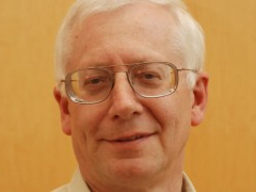Applied Mathematics Colloquium: Dr. Roman Sznajder
Bowie State University
Location
Mathematics/Psychology : 104
Date & Time
March 10, 2017, 2:00 pm – 3:00 pm
Description
Title: On known and less known relations of Leonhard Euler with Poland
Abstract In this lecture I will focus on research contacts of Leonhard Euler with Polish scientists of his era, mainly with those from the city of Gdańsk (then Danzig). L. Euler was the most prolific mathematician of all times, the most outstanding mathematician of the 18th century, and one of the best ever. The complete edition of his manuscripts is still in process.
Euler’s contacts with French, German, Russian, and Swiss scientists have been widely known, while relations with Poland, then one of the largest European countries, are still in oblivion. Euler visited Poland only once, in June of 1766, on his way back from Berlin to St. Petersburg. He was hosted for ten days in Warsaw by Stanisław II August Poniatowski, the last king of Poland. Many Polish scientists were introduced to Euler, not only from mathematical circles, but also astronomers and geographers. The correspondence of Euler with Gdańsk scientists and officials, including Carl L. Ehler, Heinrich Kühn and Nathanael M. von Wolf, originated already in the mid–1730s. We highlight the relations of L. Euler with H. Kühn, a professor of mathematics at the Danzig Academic Gymnasium and arguably the best Polish-German mathematician of his era. It was H. Kühn from whom Euler learned about the Königsberg Bridges Problem; hence one can argue that the beginning of the graph theory and topology of the plane originated in Gdańsk. In addition, H. Kühn was the first mathematician who proposed a geometric interpretation of complex numbers, the theme very much appreciated by Euler.
Findings included in this paper are either unknown or little known to a general mathematical community.
